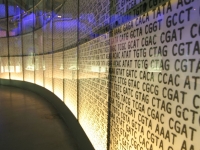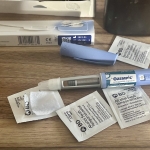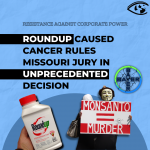Myriad Loses Patent to Breast Cancer Genetic Test

Myriad Genetics has lost its right to be the exclusive U.S. commercial provider of genetic screening tests for breast cancer or ovarian cancer. The American Civil Liberties Union (ACLU), which sued the company, claimed that the patent would limit scientific research as well as health care options for women.
Mutations in the BRCA1 and BRCA2 genes significantly
increase the risk of cancer. By discovering the location of the genes, Myriad was
able to develop tests to detect the mutations for which it charged over
$3,000. No other company was allowed to do research on the genes without
permission from Myriad.
In a unanimous decision released today by the U.S. Supreme Court, all
nine judges agreed with the ACLU.
"Myriad did not create
anything," Justice Clarence Thomas wrote in the decision. "It is
undisputed that Myriad did not create or alter any of the genetic information
encoded in the BRCA1 and BRCA2 genes. Groundbreaking, innovative or even
brilliant discovery does not by itself satisfy the criteria (for a patent)
The Myriad patent has long been deeply controversial.
"For women as they are trying to make these major life decisions, it is very
helpful for them to have a second opinion. By having only a single lab offering
that testing, it is impossible really
to be able get that second opinion, either in the way the test is performed
or in the interpretation of such a result," says Dr. Wendy Chung, a clinician
and a geneticist at Columbia University. "You're
essentially stuck in a situation of a mediocre test."
The Myriad screening test is also mostly based on results gathered from white
women. The patent has limited
further research to see if the results are accurate for women of other races,
says Kim Irish of Breast Cancer Action who cites the example of Runi Limary, an
Asian woman who received ambiguous results when she had genetic testing done.
"Runi was told that this "variant of uncertain significance" has been seen in
Asian women, and that these ambiguous results seem to come up more for women of
color," says Irish.
The ACLU
filed a lawsuit against Myriad, the University of Utah Research Foundation
and the U.S. Patent and Trademark Office in May 2009. A federal judge ruled
against Myriad in 2010 but the company won on appeal at the U.S. Court of
Appeals for the Federal Circuit.
James Watson, one of the two scientists who discovered DNA, filed a friend of
the court brief that stated: "(W)e would not want one individual or company to
monopolize the legal right to the beneficial information of a human gene-information
that should be used for the betterment of the human race as a whole."
The U.S. Patent and Trademark Office has long accepted claims that include DNA
sequences - an
estimated 35,000 such patents have been approved.
However the Obama administration recently began to limit this approach. "The
chemical structure of native human genes is a product of nature, and it is no
less a product of nature when that structure is 'isolated' from its natural
environment than are cotton fibers that have been separated from cotton seeds
or coal that has been extracted from the earth," wrote lawyers for the U.S.
Department of Justice in a legal brief in 2010. "Common
sense would suggest that a product of nature is not transformed into a
human-made invention merely by isolating it."
The ACLU welcomed the decision. "Today, the court struck down a major
barrier to patient care and medical innovation," said Sandra Park, an ALCU
lawyer. "Myriad did not invent the BRCA genes and should not control them.
Because of this ruling, patients will have greater access to genetic testing
and scientists can engage in research on these genes without fear of being
sued."
- 182 Health



